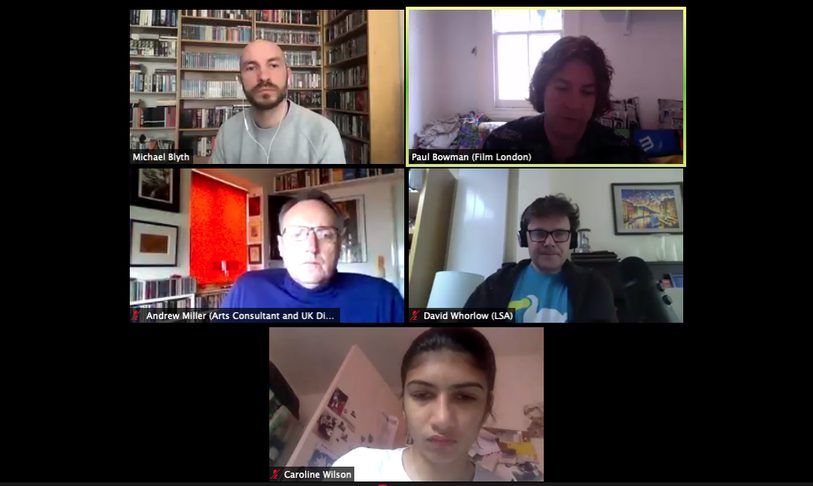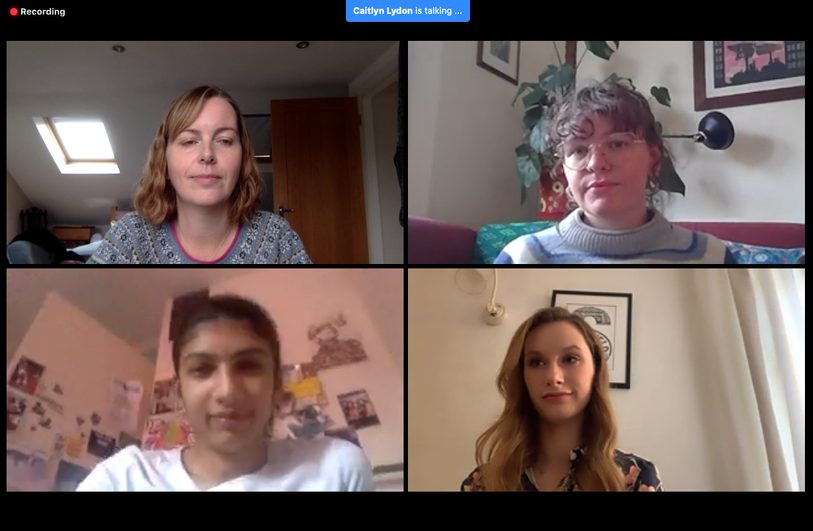News Story
Last week, Film Hub London hosted a special BFI London Film Festival Exhibitors' Breakfast, focused on innovative initiatives welcoming audiences back to screenings across the UK, and featuring a number of hugely informative presentations from across the exhibition sector.
First up, Michael Blyth, Film Programmer for the BFI London Film Festival and Senior Programmer for BFI Flare, talked through the challenges and opportunities when moving your festival online.
“We settled on a hybrid model so we could be flexible if things had to change, but it was very important to us to retain the ‘cinema’ aspects of the festival if at all possible. It became clear that this was a way we could engage with, and help, independent cinemas across the UK by taking the programme wider than it ever was.”

Film Hub London BFI London Film Festival Exhibitors' Breakfast
Michael also talked through some of the more challenging logistical aspects – programming a far smaller number of films, guarding against piracy, abandoning a print programme for the first time – but was keen to impress the chance afforded to think of the festival in new and interesting ways, of “blowing the event wide open, opening it up to the whole country, while keeping the integrity of London Film Festival.”
Next, BFI Film Audience Network Young Audiences Co-ordinator Moira McVean introduced the Young Consultants: 21 young people under 30 working in film exhibition across the UK, who collaborate with distributors to help bring their films to younger audiences.
We were joined by five of the Young Consultants - Thea Berry (Watershed, Bristol), Gabrielle Jackson (Brewery Arts, Kendall), Caitlin Lydon (Freelance Digital Content Creator), Megan Mitchell (Matchbox Cineclub) and Caroline Wilson (Undr Lndn) – who talked though their mission to “underpin the importance of young people’s voices within the independent cinema sector” (Megan Mitchell).

FAN Young Consultants Thea Berry, Caroline Wilson and Gabrielle Jackson with Moira McVean
Finally, Andrew Miller, the UK Government’s first Disability Champion for Arts & Culture, talked through The Seven Principles for an Inclusive Recovery, a new initiative offering practical guidance to arts and cultural organisations to support disabled artists, audiences, visitors, participants and employees.
The seven principles are available of the We Shall Not Be Moved website, and comprise the biggest disability arts movement since the 1980s, in response to the way the pandemic has exacerbated inequalities, with new rules in the reopening of venues bringing new barriers and unintended discrimination.
“The sector isn’t going back to how it was in March” says Andrew. “But it didn’t work for everyone anyway. This is our chance to combat unconscious ableism, celebrate diversity and listen to new voices.”